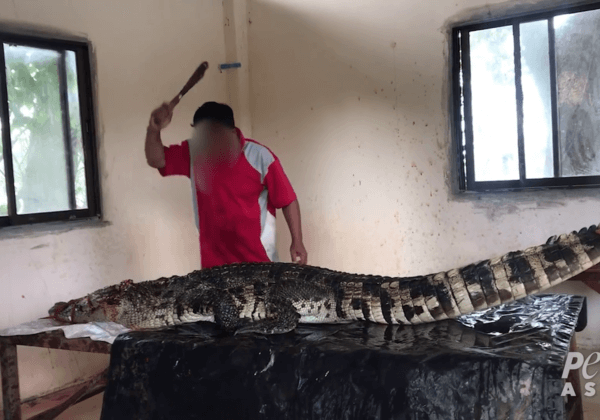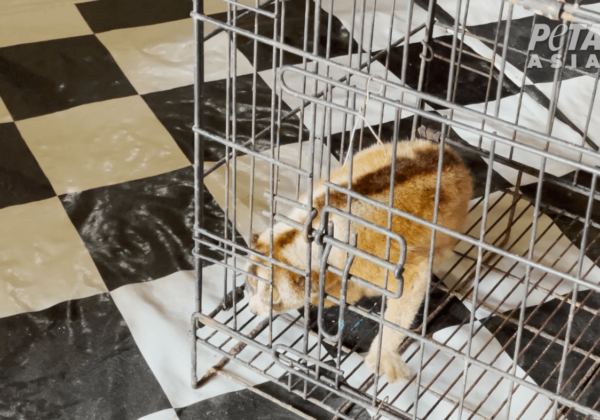Patrons Mock Seemingly Agitated Lion in Lebanese Zoo Enclosure (Viral Video)
A zoo in Lebanon known as Animal City posted a video to Instagram showing patrons apparently mocking and laughing at a lion, who appears to be agitated by the interaction. The menagerie—which included the hashtags #wildsanctuary and #animalshelter in its post—was attempting to promote the “face-to-face encounter” but is instead facing serious backlash from furious viewers. One commenter called the encounter “disgusting” and “vile,” while another called it “hell for animals.” And they’re right—lions belong in the African savanna or the forests of Asia, where they can roam free with the rest of their pride, not in an enclosure where they can’t avoid contact with humans.
Please, stay away from this facility and any other establishment that promotes encounters that cause animals stress—including photo opportunities (for which Animal City appears to exploit lion and bear cubs, monkeys, snakes, and other animals) and “face-to-face” experiences.
https://www.youtube.com/watch?v=re3DRg6QBHk
The only way to force big cats to perform or endure photo ops and other unwanted contact with the public is under the threat of physical punishment, so it’s no surprise that some become so distressed by the unnatural conditions that they lash out. Hundreds of humans and other animals have sustained injuries and even been killed at facilities, including cruel tourist attractions that often pose as “sanctuaries,” “rescues,” “refuges,” or even “orphanages” for cubs attempting to capitalize on big cats’ allure.
Spotting a Fake Sanctuary or Rescue Is Easy
Big cats are intelligent, self-aware animals. Those held at profit-hungry tourist attractions—even ones that are deceptively called “sanctuaries” or “rescues”—endure heartbreaking physical and psychological abuse that’s inflicted in order to force them to tolerate direct contact with the public. It’s little wonder that so many reach their breaking point. But discerning which sanctuaries are shams and which are legitimate is easy—before visiting one, ask these questions:
- Are big cats bred at the facility?
- Does the facility allow photo ops or other human interaction with big cats?
If the answer to any of the above is “yes,” stay away. A true big-cat sanctuary would never buy, sell, trade, breed, exploit, or profit from them. Authentic sanctuaries don’t force these naturally fearful animals into unwanted contact with a barrage of strangers.









